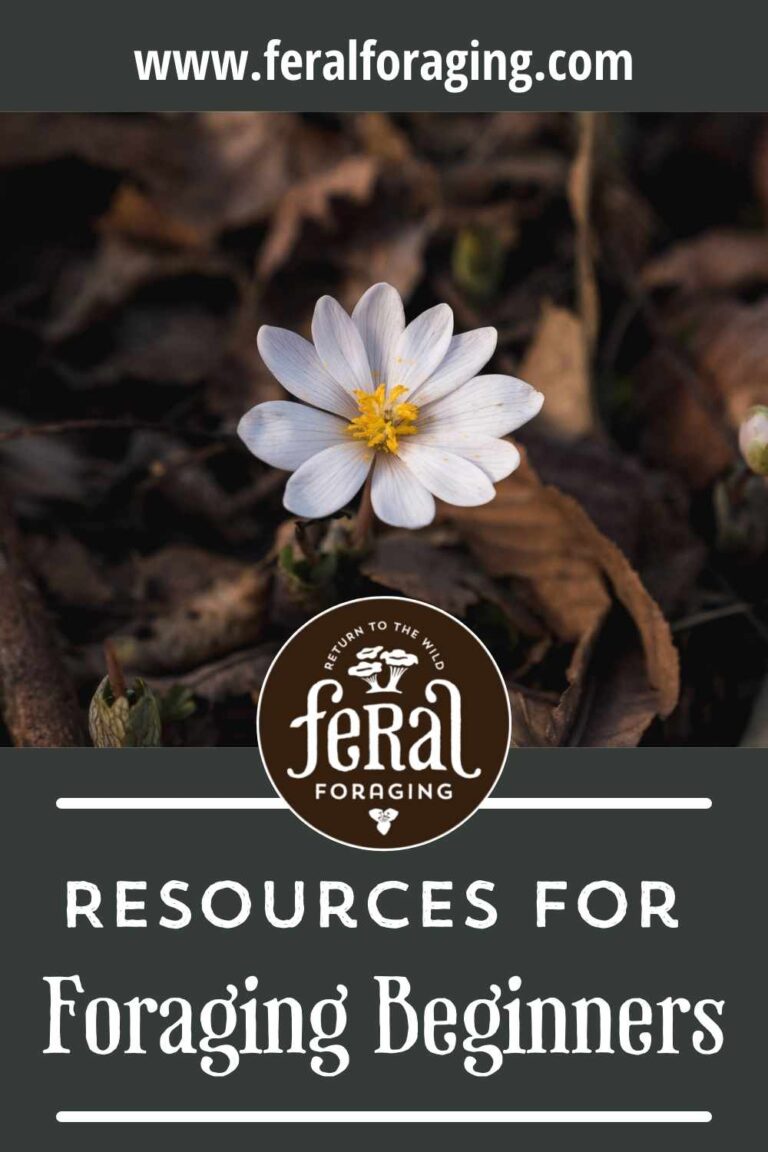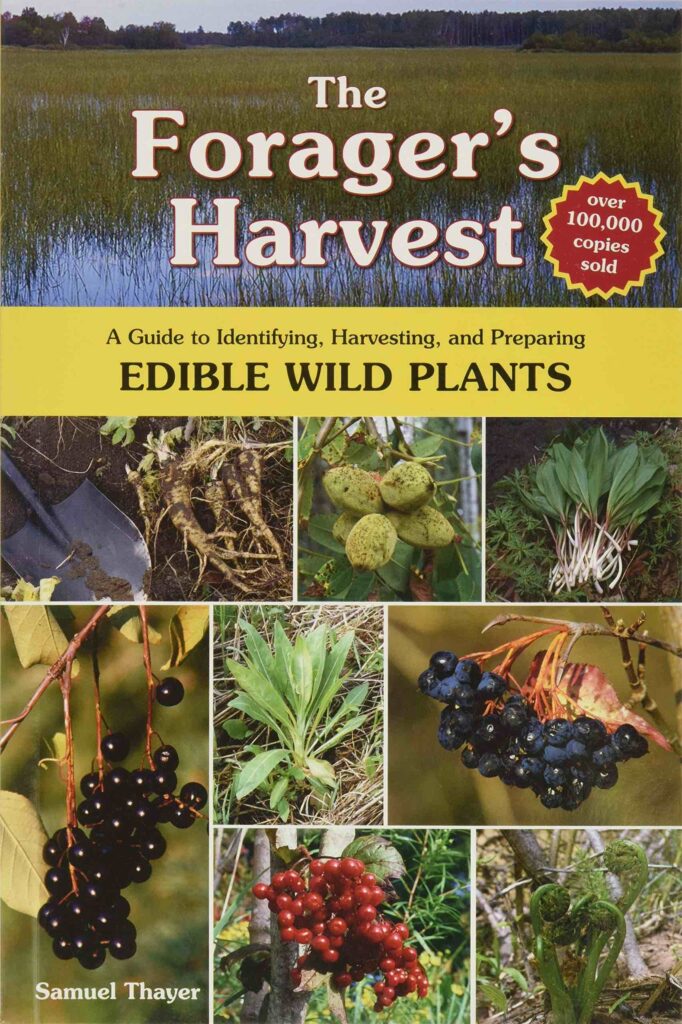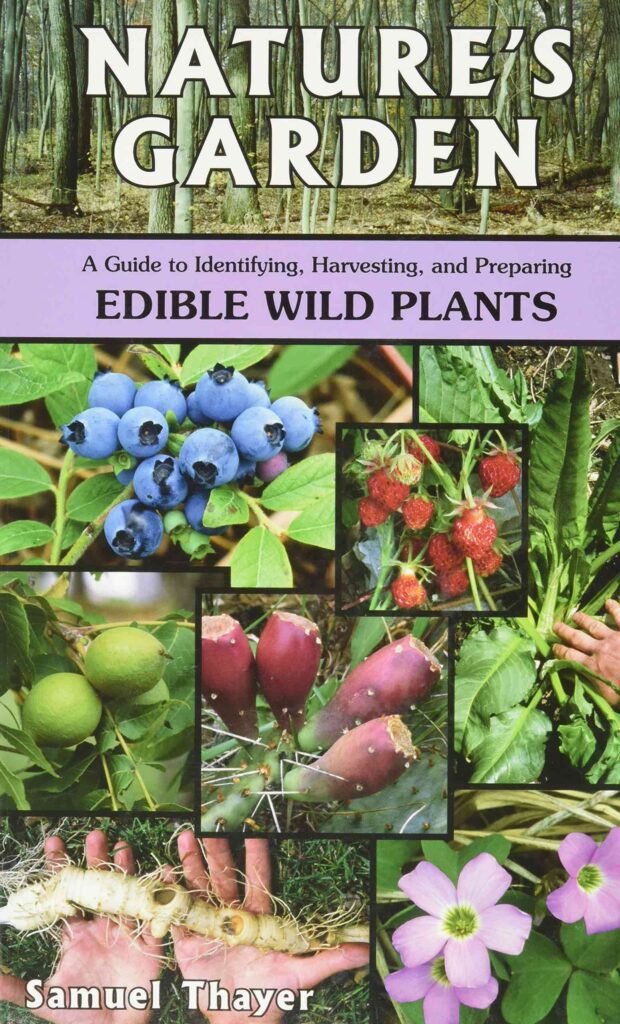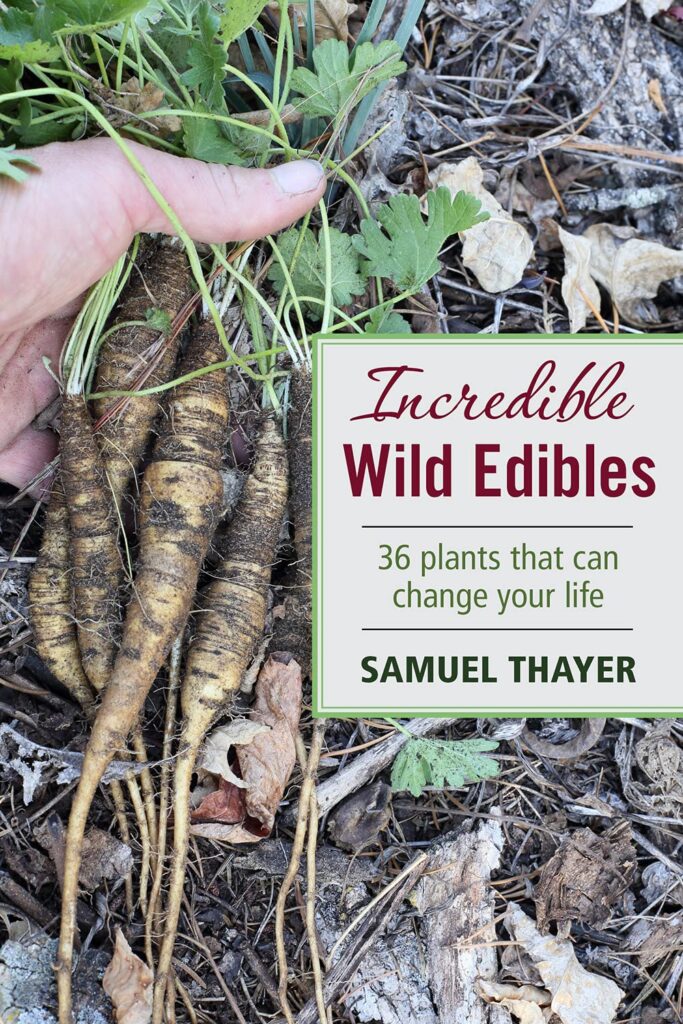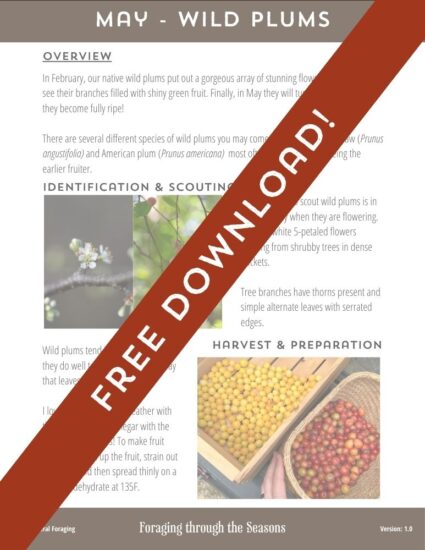Wild foraging for food and herbs is an incredibly fulfilling practice, however as a beginner forager, the whole process can feel overwhelming at times. From the endless wall of green plants to fungi that all seem to look similar to how to best harvest, preserve, and use what you’ve found, it can be difficult to know where to start. Over my years foraging, I have compiled a list of resources that have been most beneficial and that I consistently return to. In this article, we will go over those resources and how to best utilize them.
Note – this article focuses particularly on foraging in Southeast North America, but the principles apply to any forager.
Where to start
Before we get started with the resources, I just wanted to make a quick point. The order to your learning is important with a practice such as foraging. For instance, skill in identification drastically outweighs your ability to cook wild food well in terms of importance. Why? If you’re great at ID, but not so great at cooking, you may end up with a bland mushy disappointment. However, if you’re terrible at ID, but incredible at cooking, you may have a nice dinner, but it could be your last.
So if I can offer one piece of advice. Start with Identification. The other skills, scouting, cooking, preservation, etc. will follow.
Want to learn identification as fast as possible? Learn how to use dichotomous keys. More on that in the books section.
Proper Safety - Follow These Rules
This is by no means a comprehensive set of rules, but this is what I go by and it has kept me safe along my foraging adventures.
- Do NOT consume or use unless you are 100% confident in your identification. Sub-Rule – get to 100% positive identification by knowing both at least 4 distinguishing characteristics about the specimen of interest as well as if there are any poisonous lookalikes and how to tell the difference.
- Know how to practice ethical foraging. This protects the wild specimen you are after from over-harvesting and damage. See section below.
Ethical Harvest
Before you even pick your first plant, be sure that you are up to date on ethical foraging practices. Without this, we all may forage today, without a guarantee of being able to tomorrow. It is each and every one of our responsibilities to forage ETHICALLY. The American Herbal Products association has produced a guide that can educate you on general best practices. They have several resources, but the one that you are looking for in particular is Good Agricultural and Collection Practice for Herbal Raw Materials.
Transparency: Feral Foraging, as an Amazon associate, earns a small portion of purchases made by following the links to purchase books on Amazon below.
Books
Foraging Specific - Samuel Thayer's Book Series
Do yourself a favor and buy Sam’s books right now. When I read them the first time, I kicked myself for not having done so earlier! The level of detail that goes into each of the many wild edibles highlighted in his series is incredible. I often get asked the question of what foraging book I recommend that is Southeast specific. The answer is- none of them. I have not found a book that I could recommend to another person that is only for the Southeast. So save yourself some money and time and purchase one of Sam’s books as well.
(Note: I am in no way financially incentivized to promote Samuel Thayer’s books)
Click the book photos to be taken to a product page for purchase.
Field Guides for Identification
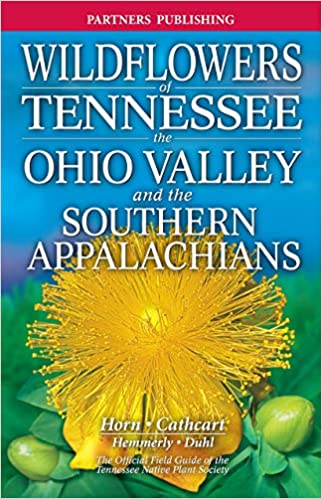
Wildflowers of Tennessee the Ohio Valley and the Southern Appalachains
If you asked me, "What ONE book would you keep for identification if you had to throw away all the others?" It would be this one. The quick color organized key in the front and the photos throughout the book are fantastic. It is also extremely rugged, though a bit heavy. This book is a MUST have.

This is my go-to book for identifying trees in North Alabama. Another quick tip-learn trees early. Learning how to see and identify trees, especially in the Winter completely changed the way I walked through the woods. If you can, learn how to identify trees earlier rather than later. You can make the process much easier by utilizing keys. This book has good keys.
I can also recommend the Peterson Field Guide to Eastern Trees [[add link]]
If you'd like to get a jump start on Winter Tree ID, be sure to read our Fundamentals of Winter Tree Identification article.
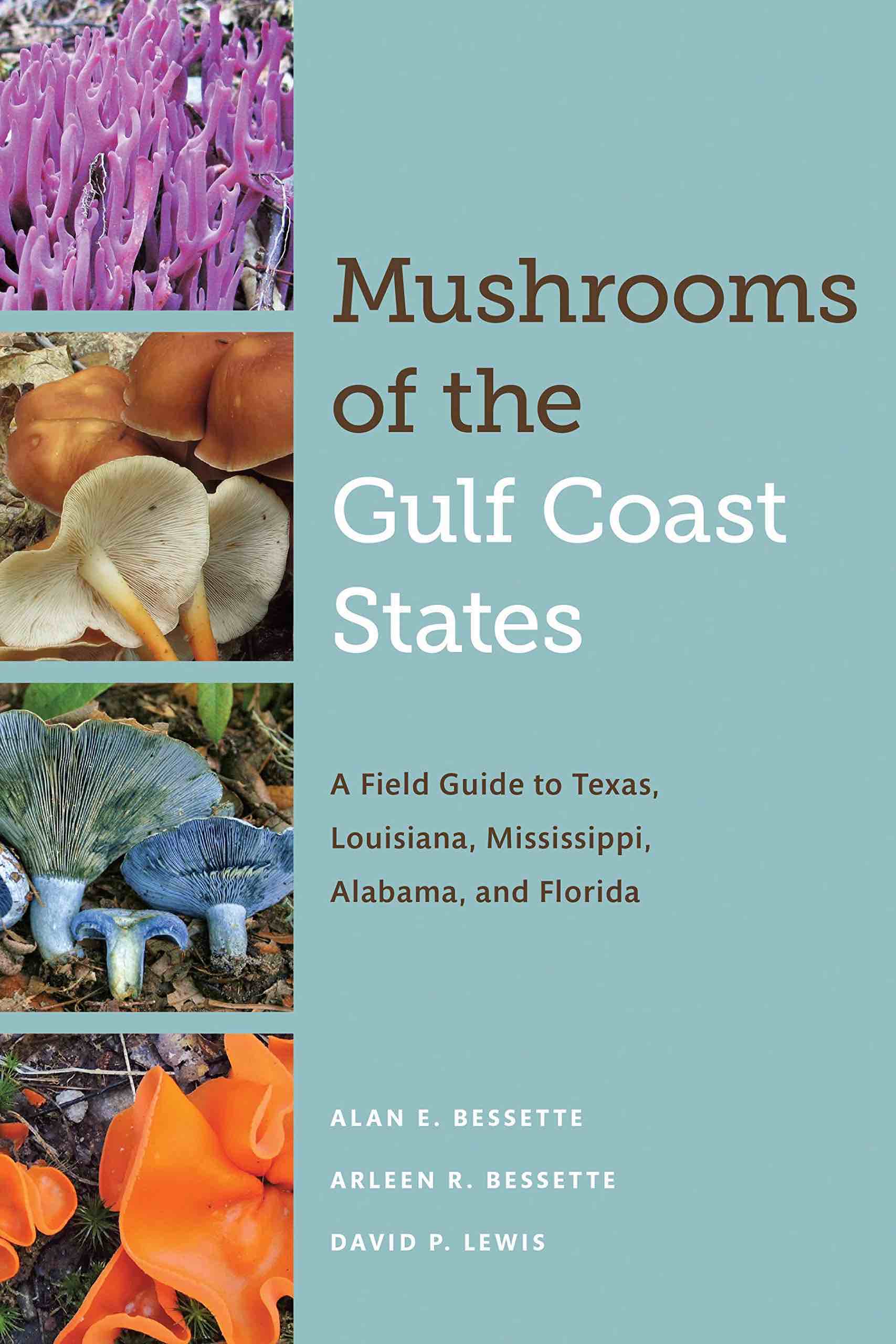
Mushrooms of the Gulf Coast States
As with plants, for fungi keys are the key to success! I'm am always searching for field guides with the best keys. This book is my current favorite for mushrooms of the Southeast area, but the authors: Alan & Arleen Bessette have field guides for many other areas of North America. I highly recommend their field guides if you really want to learn fungi!
Fundamental Learning
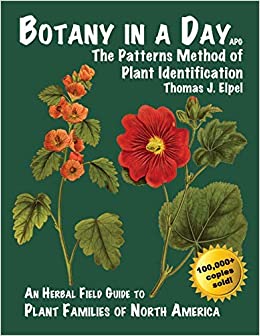
From my science geeks out there, this book will change the way that you see and understand plants forever. From the moment that I picked up this book and started reading, I couldn't put it down. I highly recommend for anyone who is looking for a systematic breakdown of the morphology and evolutionary history of plants!
The keys on plant families are fantastic. This is an irreplaceable resource.
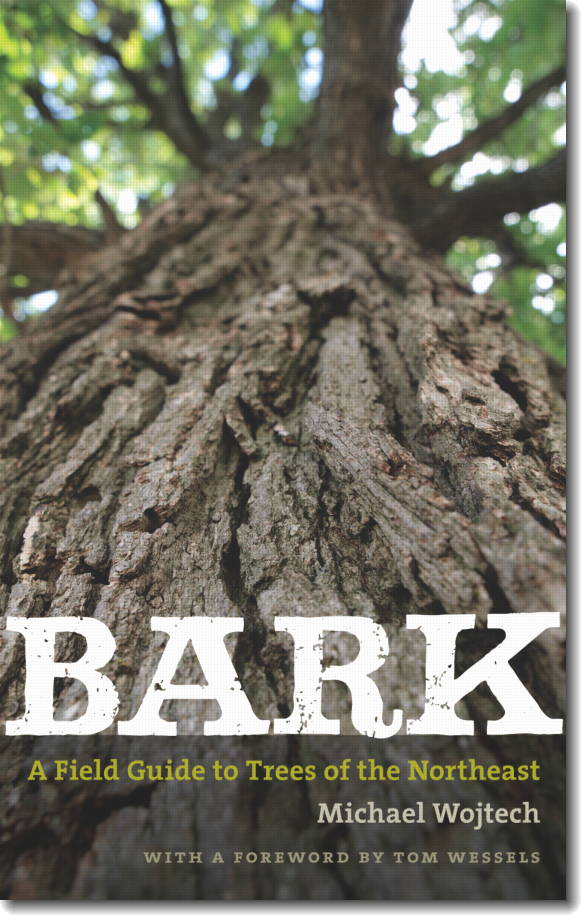
Bark: A Field Guide to Trees of the Northeast
This book is not just for the Northeast and it is the only book that I've come across that does a proper job of explaining bark in detail. In this book you'll find a break down of tree bark into visually distinguishable categories. Identifying trees by their bark can be difficult (and you should learn buds first) but this book will make the task much easier.
Online Foraging Groups
Online groups can be a very helpful place to chat with others interested in foraging, plants, and fungi. They are also helpful to see what people are posting about to learn what is in season at the current moment. You can find these groups on all different kinds of social media sites: Facebook and Reddit are the two main ones that come to mind.
If you would like to join an online community of like-minded individuals who are interested and passionate about foraging, consider checking out our all-things-foraging Discord server. All are welcome! You can join by clicking the button below.
If you are on Facebook, check out the following groups.
If you are in the Alabama or the Surrounding area, consider joining the North Alabama Foraging Club on Facebook. We discuss use and identification of plants and fungi in North Alabama and the surrounding area. If you’re particularly interested in fungi beyond the basic edibles, see the next group!
This is hands down the place to get feedback and help from some of the best mycologists and fungi enthusiasts in Alabama. Highly recommend!
YouTube
YouTube is our favorite platform to get to teach wild foraging skills to all who are interested! Click “Watch on YouTube” in the video below to be taken to a video on our channel. We post regular content teaching you the fundamental skills that are needed to Forage without Fear!
Don't Miss out on Future Resources
We produce a growing supply of use and identification resources for foragers. From identification sheets to recipe cards, you can find them all of Feral Foraging! If you would like to be notified whenever we have new educational content available, consider subscribing to our mailing list by clicking here!
